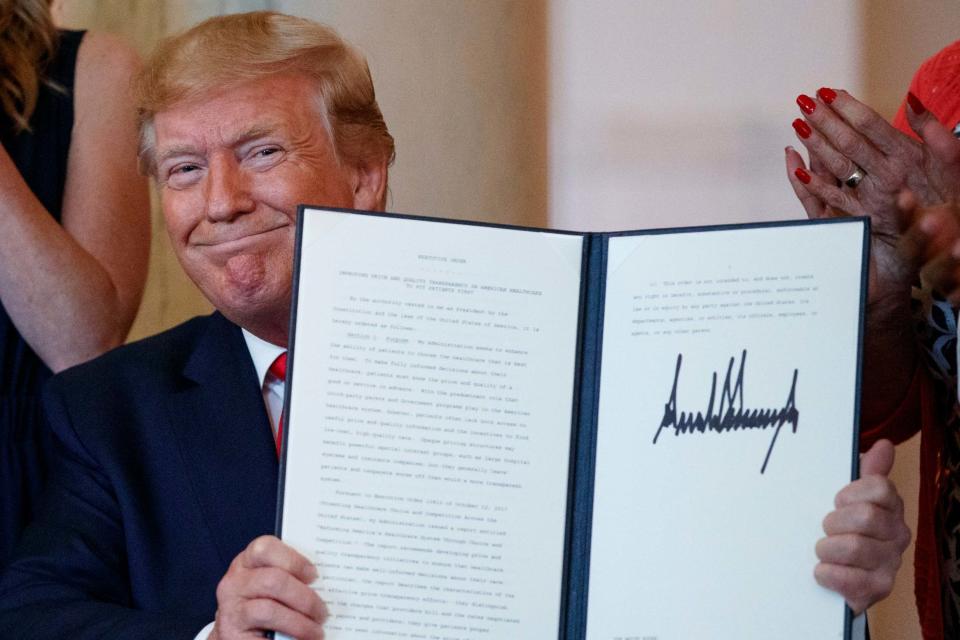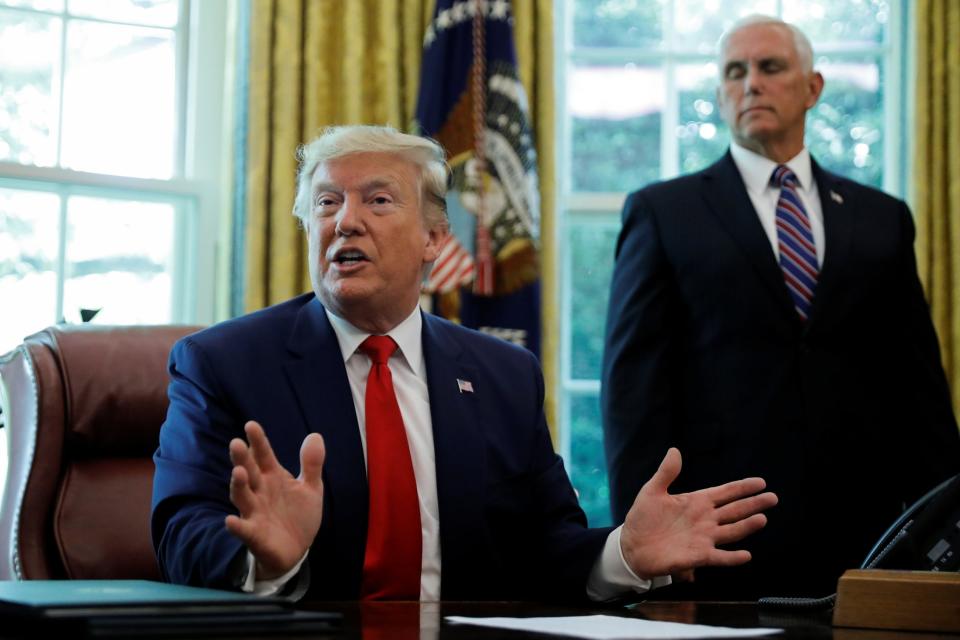Iran news latest: 'Reckless' Tehran must de-escalate, says Defence Secretary as tensions with US rise
The Defence Secretary has said Iran has been “reckless” and must de-escalate as she warned the dangers of miscalculations being made are very high.
Penny Mordaunt's comments come as US president Donald Trump signed an executive order targeting Iran's supreme leader Ali Khamenei and his associates with financial sanctions.
Tensions between the US and Iran have increased in recent weeks after the downing of an American drone and claims by Washington that Tehran was behind attacks on oil tankers in the Persian Gulf.
Foreign Secretary Jeremy Hunt said this week that Britain would consider joining the US in military action, something Ms Mordaunt said she supports.
"The Foreign Secretary has made it very clear that that is what Iran should do, it has been reckless, quite frankly, some of the things we have seen endangering life, endangering commerce - that is not a good place to be," she said.
"Iran must de-escalate."

She added: "I think the dangers of miscalculations being made are very high and we don't want that to happen so we would urge Iran to really seriously think about what it is doing."
Ms Mordaunt said that Iran will be judged by what actions it takes next, and that Britain will respond to things on a case-by-case basis.
Speaking as she announced how the UK's F-35B stealth fighter jets had conducted their first operational missions over Iraq and Syria, she said Britain works "absolutely hand in glove" with the US.
Asked what message Britain's use of the F-35 cutting-edge jets as part of Operation Shader may send to Iran, Ms Mordaunt said it was "part of a planned deployment".
"It is not in response to those recent events, and I think it is very important that we make sure that people know that, because we want the situation to de-escalate in the region," she said.

Quizzed on whether the Iranian issue should be featuring more within leadership contest debates, Ms Mordaunt said: "Yes, we should be talking about foreign policy, we should be talking about our defences, the investment we need to make in them."
Mr Hunt's comments came as Foreign Office minister Andrew Murrison held talks with the Tehran government at the weekend where he said he was "clear" about the UK's concerns over Iran's activities.
US secretary of state Mike Pompeo said on Sunday that he was seeking to build a "global coalition" against Iran, branding Tehran "the world's largest state sponsor of terror".
Before flying to Saudi Arabia and the UAE for talks, Mr Pompeo said the US was prepared to negotiate with Iran without preconditions when the country is "ready to truly engage with us".
The trip was announced after Donald Trump said the US was "cocked and loaded" to retaliate against Iran for downing an American drone.

The strikes were reportedly called off 10 minutes before they were to be carried out on Thursday after Mr Trump was told 150 people could die.
A spokesman for Iran's armed forces warned on Saturday that a military strike would "set the region ablaze and burn up the US, its interests, and its allies".
Stating that the supreme leader is responsible for Iran's hostile actions, President Trump said America does not seek conflict but will continue to increase pressure to prevent it from developing nuclear weapons and supporting militant groups.
President Trump pulled out of a long-term deal struck with Iran in 2015 to limit its sensitive nuclear activities and allow in international inspectors in return for the lifting of economic sanctions.
The deal was signed by his predecessor Barack Obama along with the UK, France, China, Russia and Germany, which still support the agreement.
But Mr Trump declared it a "terrible" deal and imposed more sanctions.

 Yahoo News
Yahoo News 
